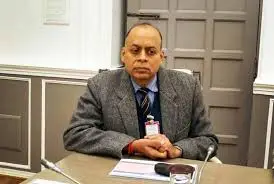Former defence secretary Dr Ajay Kumar appointed UPSC chairman

Dr. Ajay Kumar, former Defence Secretary of India, has been appointed as the new Chairman of the Union Public Service Commission (UPSC). He will serve in this role until October 2027, when he turns 65. President Droupadi Murmu approved the appointment on May 13, 2025.
A Distinguished Career
Dr. Kumar has a strong educational background. He graduated from the Indian Institute of Technology (IIT) Kanpur and earned a Ph.D. from the University of Minnesota. His career in public service began when he joined the Indian Administrative Service (IAS).
Dr. Kumar has held many important positions, notably as Defence Secretary from 2019 to 2022. During this time, he played a key role in several reforms, including the ‘Agnipath’ recruitment scheme. This initiative aimed to modernize the recruitment process for India’s armed forces.
Contributions to Defense
As Defence Secretary, Dr. Kumar helped create the position of Chief of Defence Staff (CDS). This reform unified the three branches of India’s military. It aimed to improve strategic planning and coordination. Dr. Kumar also supported the modernization of India’s defense infrastructure.
Dr. Kumar’s Role as UPSC Chairman
As Chairman of the UPSC, Dr. Kumar will oversee recruitment for India’s civil services, including the IAS, IPS, and IFS. The UPSC plays a critical role in selecting top officials for government positions.
Dr. Kumar’s leadership experience in governance and administration will likely bring new reforms to the civil services recruitment process. His previous work in defense positions him to bring a unique perspective to this role.
Looking Ahead
Dr. Kumar’s appointment signals a commitment to reforming the UPSC’s processes. His experience in implementing large-scale reforms gives him the skills needed for this important job. Under his leadership, the UPSC is expected to become more transparent and efficient.
He is likely to modernize the recruitment process further, focusing on merit and digital solutions. His background in technology and governance will likely influence his approach.
Dr. Kumar’s leadership could shape India’s civil services for years to come. His reforms may lead to a more dynamic and effective bureaucracy.






